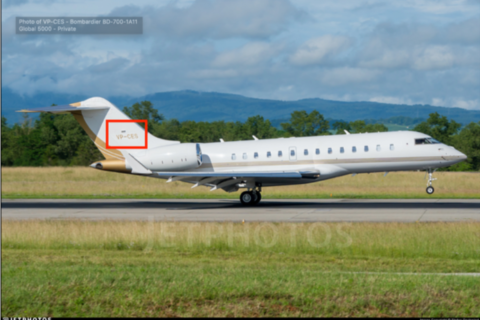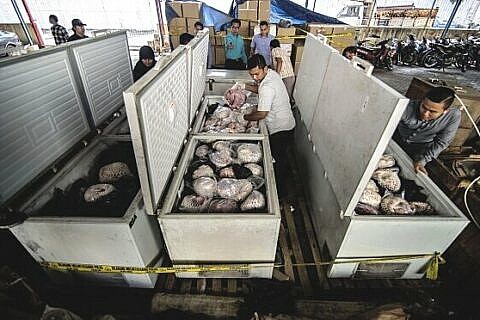Oil and Water

Since 2019, a China-based fleet of at least 56 supertankers has funneled more than 400 million barrels of illicit oil between high-risk states like China, Iran, Russia, and Venezuela — now, Oil & Water maps the beneficial ownership networks behind this segment of the infamous global “Dark Fleet.”
Executive Summary #
By transporting Russian, Iranian, and Venezuelan crude oil to international buyers, the Dark Fleet fills the coffers of heavily sanctioned states that pose a threat to regional peace and security. Western sanctioning bodies have typically focused on individual vessels and their illicit behavior, while the profiteers and opportunists who control the Dark Fleet continue to prosper. By using the systematic approach of beneficial ownership mapping, C4ADS analysts uncovered a single, China-based corporate network that appears to control a sub-fleet of over 50 supertankers—coined here the “Protean Fleet.” This fleet may account for up to 10% of the global Dark Fleet, which is estimated to number between 500 and 1,000 vessels.
The Protean Fleet epitomizes the flexible, ever-evolving nature of sanctions evasion at sea. The controlling ultimate beneficial ownership (UBO) network behind the fleet began acquiring ships in 2019 and immediately set them to work transporting crude from Iran and Venezuela to China. Having acquired at least 25 vessels by early 2022, the fleet was perfectly positioned to immediately begin transporting Russian crude following the onset of Western sanctions after Russia’s February 2022 invasion of Ukraine. This flexibility makes the Protean Fleet—and other sub-fleets like it—valuable tools for sanctioned governments, as they can theoretically be tapped by any country facing new sanctions.
To disguise the oil’s origins and insulate its beneficial owners from legal consequences, the Protean Fleet has used frequent dark voyages, ship-to-ship transfers, GNSS (Global Navigation Satellite System) manipulation, and sophisticated vessel identity-swapping techniques. As sanctions regimes target ships and shell companies, they risk playing a game of whack-a-mole with replaceable assets. While the U.S. Department of the Treasury’s Office of Foreign Assets Control (OFAC) has sanctioned 43 of the Protean Fleet’s 56 vessels as of May 2025, the controlling beneficial ownership of this network has not been previously reported. Using vessel ownership databases, corporate registry records, satellite imagery, flag registry documents, Automatic Identification System (AIS) transmissions, and leaked data, C4ADS found:
- Sophisticated oil exchanges between Protean Fleet tankers in the waters east of the Strait of Malacca have allowed at least 404,827,160 barrels of crude oil to move from sanctioned jurisdictions to the People’s Republic of China (PRC) and India since July 2019.
- The likely beneficial owners of the Protean Fleet include elements of a PRC-based network previously sanctioned by OFAC in 2019 for smuggling Iranian oil.
- The UBO used its vessels as collateral for over US$750 million worth of mortgages issued by three British Virgin Islands companies operated by three Swiss directors.
- Loopholes in maritime, financial, and corporate infrastructures allow for continued oil trade in defiance of western sanctions, including U.S. dollar-denominated mortgage loans that U.S.-based correspondent banks may have processed.
By outlining infrastructure loopholes—and measuring the cost of leaving them open—we make a case and recommendations for targeting this threat network more sustainably






